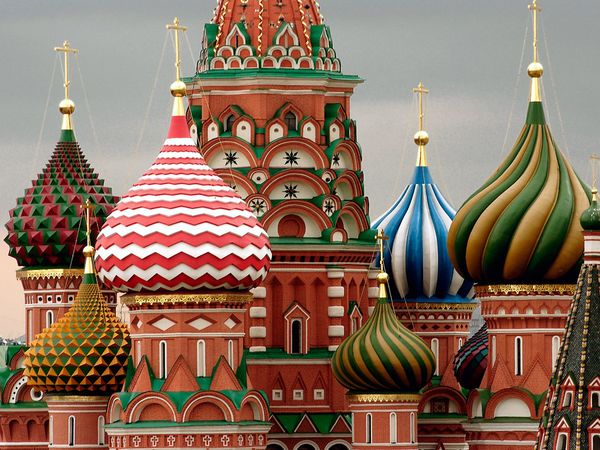
The property crisis in Mallorca could soon be a thing of the past thanks to the Russians, at least regarding the luxury market in which northern Europeans generally operate when buying houses on the island.
More Russian Tourists
The influx of Russian tourists in Mallorca continues to grow. According to Natalie Tours, the operator specializing in Russian travel to Mallorca, this year some 150,000 Russians visited the island compared with 105,125 the last. These figures fall far short of the 3.4 million Germans who each year spend their holiday here. But this kind of tourism is exponential in growth: three years ago Russia barely featured on the radar, two years ago there were 80,000 Russian visitors and in the coming year, in excess of 200,000 are expected. Natalie Tours has great confidence in their Mallorcan market. In fact, in the coming years they expect it to grow further due to the increase in air routes and an easing-up in the processing of visas. There are direct flights from Palma de Mallorca’s airport to two of the major Russian cities, Moscow and Saint Petersburg, and easy connections with one stop only to many others. The Russian effect is making itself felt in terms of a longer stay – ten days – than that of the British or German holidaymaker, and in particular, they spend much more: around 165 euros per person per day.
Palma de Mallorca, A Shopping Paradise for Russians
Palma stores have already taken this into account. It is not uncommon to see all type of signage translated into Russian to facilitate these valued customers. The influence of this new tourism is evident also from the fact that since 2012 a biweekly Russian newspaper called Vesti Mallorca is published in Mallorca. It is meant to be a useful guide for Russian-speaking tourists and new residents who wish to pursue integration more easily, while being the essential tool for companies who wish to address Russian-speaking customers, who day by day have more purchasing power and presence on the island.
From Tourists to Property Owners
Among the new influx is a growing number who opt for residential tourism; that is, they buy a house in which to spend their holidays, or for longer stays. The President of the Real Estate Developers Association of the Balearics, Jose Luis Guillermo, recently said that last-minute purchases by Russians are becoming a boom area of Mallorcan trade. In the last three years, the island has become the favourite choice of Russians when buying a house in Mallorca or Ibiza. Purchase prices have dropped somewhat in the latest economic downturn, so that now the average property price for Russians lies between 300,000 and 600,000 euros, and few reach prices up to 10 or even more millions euros. Usually they secure houses in tourist areas: Port Andratx , Pollença, Alcúdia, Capdepera, Cala Millor, Playa de Palma – and also refurbished flats in Palma’s historic quarter. Continuing demand will not affect a ready supply. This year´s market figures are already better than last year´s, and they themselves were very good.
There is no precise data yet about the economic figures driving this new residential tourism in Mallorca. But all indications are that important changes are afoot. Not in vain have the main island estate agents who operate in foreign markets added Russian to their promotional literature. The President of the Developers Association claims that the growth of Russian investors in Mallorca has increased dramatically, and will continue, in the coming years particularly since the Spanish Government has approved to give the residence permit for foreign investors who purchase properties above 500.000 Euro.
Already 80.000 German have their Redisency in Mallorca
Not that residential tourism is new in Mallorca. First it was the British who bought houses and apartments in Mallorca, taking advantage of low prices in the seventies and eighties. But the corresponding German-led boom of the nineties was a phenomenon specifically sought for, that is, trying to attract affluent Europeans who buy real estate on the island. The flow of German summer tourists has never stopped growing, by far exceeding that of the British, who had traditionally been the mainstay of this market. Purchases of longer-term homes have included those by many pensioners, who now number in their thousands. It is estimated that there are currently around 80,000 German residents in Mallorca. Right now, Mallorca could be on the verge of experiencing a similar Russian boom, at least, for the workforces of real estate and construction. Nor has this escaped the political world: within the actual Government of the Balearic Islands, there is already talk, if as yet no formal proposals, of facilitating this Russian investment.
Both the political left and the nationalists have their antennae set to alert, given that current planning restrictions governing the building on rural land in Mallorca could soon be reduced to a minimum. This would lower the price per square metre of land and thereby allow for more construction. Indeed, the increase of one to two acres as a minimum plot to build on rural land was imposed by the Council of Mallorca in the 1995-1999 term. At that time, the island was embroiled in intense controversy over the massive acquisition of properties by the Germans, something which produced countless pages of press copy, public discussion and a degree of political activity.
The Russians are hot in Mallorca and despite its fabled climate
Why the Future of the Investors is Safeguard
Legal reform will undoubtedly safeguard future Russian investment. It is not just these institutions which are keen to facilitate, however. In recent weeks the local press too has helped, according interviews to three prominent Russians here: a lawyer, a diplomat and a businessman. Mallorca at least seems to become hot and trendy in Russia.
